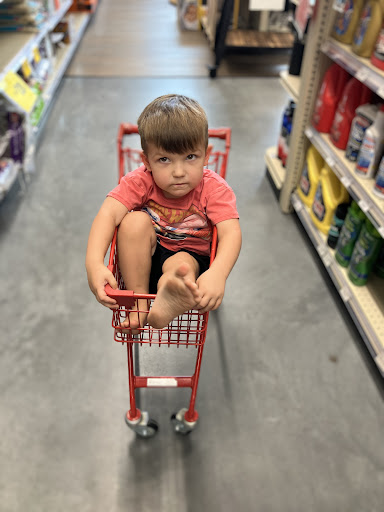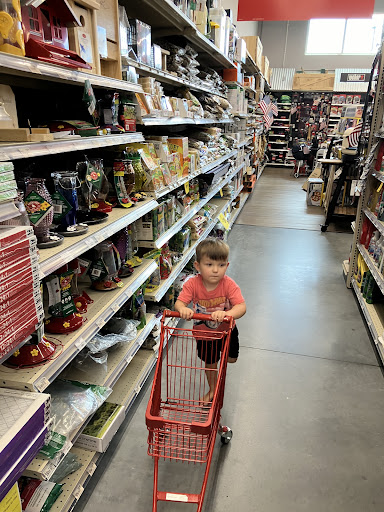Why the Right Inshore Fishing Gear Makes All the Difference
Inshore fishing gear is specialized equipment for fishing in shallow saltwater environments like the flats, bays, and estuaries along the South Carolina coast. Most inshore fishing happens in water from 2 to 20 feet deep, targeting popular species like spotted sea trout, redfish, and flounder.
Essential inshore fishing gear includes:
- Rod and Reel: 7-foot medium-power spinning rod with a 3000-4000 size reel
- Line: 15-20lb braided main line with a 20-30lb fluorocarbon leader
- Lures: Soft plastic paddletails, shrimp imitations, and topwater plugs
- Terminal Tackle: Circle hooks, bullet weights, and swivels
- Natural Bait: Live or frozen shrimp, mud minnows, and mullet
“Most inshore fishing is done on the flats or in shallow bays around docks or mangroves where getting a bait to the fish and then getting that fish to the boat is a real challenge,” notes one fishing expert. The clear, shallow waters of inshore environments mean fish are often spooky, requiring precise casts and quality equipment that won’t fail when you hook the fish of a lifetime.
The helpful team at Lowcountry Ace has spent years helping outdoor enthusiasts in the Charleston area. We understand that choosing the right inshore fishing gear can make the difference between a successful day on the water and going home empty-handed. We’ve guided countless anglers in selecting equipment that matches their skill level and the unique fishing conditions of our beautiful Lowcountry waters.
The Foundation: Choosing Your Inshore Rod and Reel
Your rod and reel are the heart of your inshore fishing gear and your direct connection to the fish. While options range from budget-friendly to high-performance, the key is understanding what makes a setup effective for our unique Lowcountry waters.
For fishing the flats near James Island or the docks of Folly Beach, you need tough, versatile, and reliable gear. A spinning reel combo is an excellent, easy-to-use choice for most inshore trips, especially for beginners or those wanting an all-around setup.
Two features are non-negotiable for saltwater: corrosion resistance and a smooth drag system. Corrosion-resistant components ensure your gear lasts in the harsh saltwater environment. A smooth drag acts like a shock absorber, letting line out evenly when a strong fish runs, which prevents snapped lines and lost fish.
If you’re looking for a general overview of fishing reels and rods, we’ve got more info right here: More info about Fishing Reels and Rods.
Key Features of an Inshore Rod
An ideal inshore rod balances sensitivity, strength, and casting performance. Many anglers carry two setups: one light and one heavy.
For smaller fish like Speckled Trout or Flounder, a 6 1/2 to 7-foot rod with medium-light or medium power and a fast action tip is perfect. This combination offers accurate casting in shallow water and great sensitivity. Look for lightweight graphite construction, corrosion-resistant stainless steel guides, and comfortable cork or EVA foam grips.
For larger species like Cobia or big Redfish, you’ll need a heavier rod, typically 7 to 7 1/2 feet with medium to medium-heavy power. A fast action tip is still preferred for quick hook sets. Modern rods often use advanced technology for incredible strength and sensitivity while remaining lightweight. Many are designed specifically for braided line, which improves sensitivity and control around structures like mangroves or oyster beds.
Selecting the Right Inshore Reel
For most inshore fishing, spinning reels are the most versatile and user-friendly option. A 3000-size spinning reel is a great all-around choice for targets like speckled trout and redfish, though sizes from 2000 to 4000 are also effective.
A smooth drag system is critical. It allows line to peel off smoothly when a powerful fish runs, preventing line breaks. Look for reels with corrosion-resistant components and sealed drag systems to protect internal parts from saltwater and sand, ensuring longevity and performance.
Finally, consider line capacity. Your reel should hold enough line for your target species. Aim for 140-200 yards for lighter tackle and 200-300 yards for heavier setups to handle long casts and powerful runs. A common gear ratio for inshore fishing is around 6:1, offering a good balance for various retrieval techniques.
The Connection: Fishing Line and Leaders Explained
While your rod and reel get the glory, your fishing line and leader are the critical connection to the fish. The right line setup, as the helpful team at Lowcountry Ace knows, can make or break your day. The three main types are braided line, monofilament, and fluorocarbon, and understanding their strengths is key to building the right inshore fishing gear setup.
In the clear Lowcountry flats, fish are easily spooked, so line visibility is as important as strength. This is why combining different line types is so effective. Proper knots are also crucial. The FG Knot and Double Uni Knot are excellent for connecting braid to a fluorocarbon leader; practice them until you can tie them with confidence.
| Line Type | Stretch | Sensitivity | Visibility (in water) | Abrasion Resistance |
|---|---|---|---|---|
| Braided Line | Very Low | Very High | High (can be colored) | Moderate to High |
| Monofilament Line | Moderate | Moderate | Moderate | Moderate |
| Fluorocarbon Leader | Low | High | Very Low (nearly invisible) | Very High |
Braided Line vs. Monofilament: The Great Debate
Braided line has revolutionized inshore fishing. Its thin diameter allows for incredible casting distance, and with virtually no stretch, its sensitivity is best. You can feel every bump and bite, and hook sets are immediate and direct—critical for pulling fish away from structures like docks or oyster beds. Many anglers prefer 8-strand braided line for its smoothness and durability.
Monofilament line is a more traditional choice that still has its place. Its built-in stretch acts as a shock absorber, making it more forgiving for anglers who are still perfecting their hook set. Monofilament is also very cost-effective, making it a great option for beginners or those on a budget.
The Importance of a Good Leader
In the clear waters around Folly Beach and James Island, a good fluorocarbon leader is essential, not optional.
Fluorocarbon’s refractive index is nearly identical to water, making it almost invisible to wary fish. This low visibility is a huge advantage in shallow, clear water. Furthermore, its excellent abrasion resistance provides an insurance policy against sharp oyster bars and barnacle-covered pilings that can easily shred other lines.
Connecting your braid to the leader properly is vital. The FG Knot creates the strongest, slimmest connection, while the Double Uni Knot is a simpler, reliable alternative. We typically recommend a 20-foot fluorocarbon leader in the 20-30lb test range for general inshore fishing, giving you plenty of length for re-tying.
Your Arsenal: Essential Lures, Baits, and Terminal Tackle
With your rod, reel, and line ready, it’s time to fill your tackle box. Successful lure selection isn’t about quantity, but about choosing the right lures for the conditions. A key strategy is “matching the hatch”—imitating what local fish are eating. Water clarity is also a factor: use light colors in clear water and dark colors in murky water. For shore fishing, prioritize a few versatile lures.
At Lowcountry Ace, we offer a wide range of fishing supplies. You can find more info about Fishing Supplies at Lowcountry Ace. And for bait, we have more info about More info about Fishing Baits.
Top Performing Inshore Lures
Stock your inshore fishing gear arsenal with these versatile performers:
- Soft Plastic Paddletails: A 4-inch size is a great all-around choice for mimicking baitfish and covering water.
- Shrimp Imitation Lures: Since shrimp are a primary food source, realistic shrimp imitations are crucial, especially when fish are finicky.
- Topwater Plugs: For exciting surface action, walking-style topwater plugs are fantastic when fish are feeding aggressively.
- Spoons: Simple and effective, spoons flash and wobble to imitate injured baitfish and can be cast long distances.
- Bucktail Jigs: Highly versatile, these can be fished at any depth and are effective when tipped with bait or a soft plastic trailer.
- Jigheads: A variety of weights (1/8 oz, 1/4 oz, 3/4 oz) are needed for rigging soft plastics at different depths. Weedless weighted hooks are also essential for fishing around grass or structure.
The Power of Natural Fishing Baits
While lures are effective, natural bait is often irresistible to inshore predators.
- Live Bait: Shrimp are a universal bait for nearly every inshore species. Hardy Mud Minnows are excellent for redfish and flounder. For bigger targets, Mullet are a prime choice. Other baitfish like Pinfish or Greenbacks are also highly effective. Use a small circle hook (like a 2/0) and a small split shot to keep the bait in the strike zone.
- Frozen Bait: Frozen shrimp, squid, or cut bait are convenient and effective alternatives, especially for bottom fishing.
Crucial Terminal Tackle for your Inshore Fishing Gear
These small components are the vital final connection to the fish.
- Hooks: Circle hooks are recommended for live bait and catch-and-release, as they tend to hook fish in the corner of the mouth. J-hooks are a traditional, versatile choice. Weedless hooks are essential for fishing in heavy cover.
- Weights and Sinkers: Egg sinkers let line slide freely, ideal for live bait rigs. Bullet weights are used for Texas-rigging soft plastics. Split shot are small, versatile weights that are easy to add or remove.
- Swivels and Clips: Swivels prevent line twist, while clips or snaps allow for quick lure changes.
Don’t forget accessories like pliers (split-ring pliers are useful), fish grips, and perhaps a scent attractant. An organized, waterproof stowaway tackle box helps you focus on fishing.
Mastering Your Setup: Techniques and Maintenance
Having the right inshore fishing gear is the first step. To master Lowcountry inshore fishing, you must also know how to use your equipment effectively, adapt to changing conditions, and properly maintain your gear for longevity. Common mistakes, like choosing the wrong gear for a target species or neglecting maintenance, can lead to frustration.
The Lowcountry’s diverse waters require an adaptable approach. In clear, shallow flats where fish are spooky, use low-visibility leaders and make long, precise casts. In deeper or murky water, focus on tactics that use scent and vibration.
Matching Your Inshore Fishing Gear to the Fish
Matching your gear to your target species is crucial for success.
- Redfish: These powerful fighters are found near oyster beds and docks. For most, a light to medium-heavy rod with 15-20lb braid and a 20-30lb fluorocarbon leader is effective. For larger “bull” reds, upgrade to a heavier rod, a 4000-size or larger reel, and a 30-40lb leader. Top lures include soft plastic paddletails, spoons, and natural bait like mud minnows or cut mullet.
- Speckled Trout: Known for delicate bites in calmer waters, trout require a sensitive medium-light to medium power rod (6.5-7 feet) with a fast tip. A 3000-size reel with 10-15lb braid and a 20lb fluorocarbon leader is a perfect balance. Try topwater plugs, soft plastic shrimp imitations, and jig heads with bait.
- Flounder: These ambush predators hide on sandy bottoms. A medium-heavy rod with a sensitive tip helps detect their “thump” bite. Jig heads (1/8-1/4 oz) tipped with soft plastics or live bait like mud minnows are deadly. A slow retrieve that bounces the bait along the bottom is key.
It’s also vital to adapt your lure size to match local baitfish. Many anglers carry two setups: a lighter one for finesse fishing and a heavier one for larger fish, providing flexibility for any situation.
Best Practices for Gear Maintenance
Proper maintenance is essential for protecting your investment in our corrosive saltwater environment.
- Rinse Gear After Every Use: This is the most critical step. Thoroughly rinse rods and reels with fresh water after every trip to remove salt and sand. Do not fully submerge your reel unless it is designed for it.
- Lubricate Your Reel: Periodically oil and grease your reel according to the manufacturer’s instructions to keep internal parts moving smoothly and prevent corrosion.
- Inspect Rod Guides: Regularly check guides for chips or cracks that can fray and cut your line. Replace any damaged guides promptly.
- Replace Your Line: Line degrades over time from UV exposure and use. Replace it periodically, especially if you notice any fraying or weakness.
- Store Properly: Keep rods and reels in a cool, dry place away from direct sunlight. Store rods horizontally or upright to prevent warping, and back the drag off on reels to relieve pressure on the washers.
Conclusion: Gearing Up for Success in the Lowcountry
As we’ve covered, assembling the right inshore fishing gear is about understanding how each component works together for a successful fishing experience in our beautiful Lowcountry waters.
From the sensitive rod to the invisible fluorocarbon leader, every component is vital. A versatile setup—like a 7-foot medium-power rod with a 3000-size spinning reel, spooled with braided line and an abrasion-resistant fluorocarbon leader—is a proven combination. A well-stocked tackle box with effective lures and natural baits ensures you’re prepared for any condition.
Success comes from a balanced setup and an understanding of your target species, not from spending a fortune. You need reliable equipment you can count on when a big redfish makes a run. As one seasoned pro wisely said, “reliable equipment is crucial when help isn’t a phone call away.” Your inshore fishing gear is an investment in unforgettable memories.
That’s where the helpful team at Lowcountry Ace comes in. Conveniently located in Charleston, James Island, and Folly Beach, we love helping our community get out on the water. Our team is always ready to share local tips and offer personalized advice to help you select the perfect inshore fishing gear for you and our unique local conditions. We are dedicated to making sure you have the best possible experience every time you cast a line.
Whether you’re a seasoned angler or just starting, swing by one of our locations. We’d be thrilled to help you reel in the best fishing supplies and ensure you’re equipped for your next trip. We can’t wait to help you get “hooked” on the incredible inshore fishing our region has to offer!
Lowcountry Ace Hardware: Your one-stop shop for home improvement. We offer quality products from trusted brands and expert advice from our experienced staff. Located on James Island, visit us for tools, hardware, fishing gear, power tools, building materials, grills & smokers, electrical and plumbing supplies, and more.
















